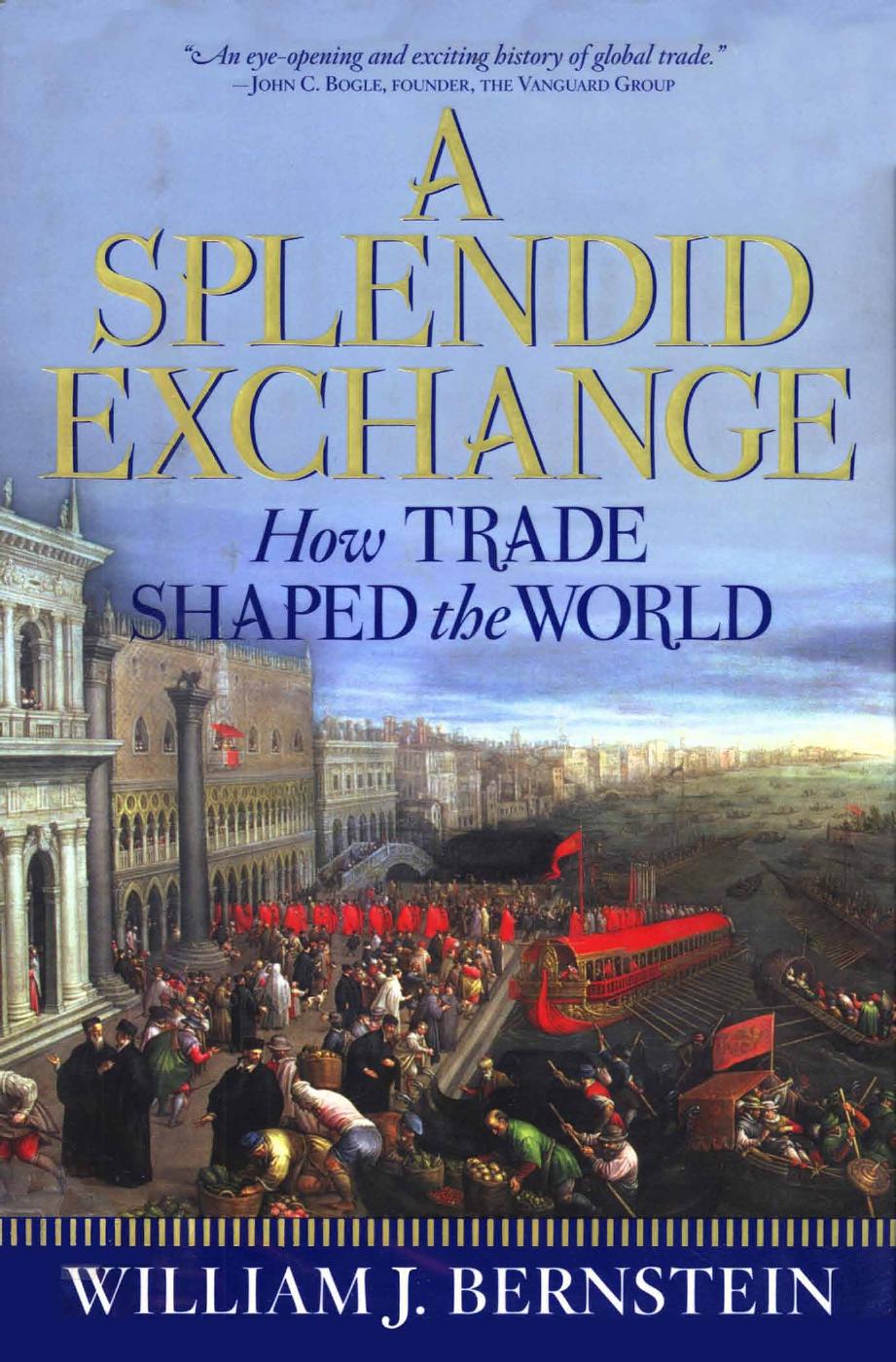A Splendid Exchange: How Trade Shaped the World by William J. Bernstein

Author:William J. Bernstein [Bernstein, William J.]
Language: eng
Format: epub, mobi, pdf
Published: 2010-09-08T20:38:00+00:00
The VOC quickly recognized that if it was to monopolize the spice trade, the Bandanese would have to go. And go they did, with a brutality and efficiency that would become the trademark of Dutch policy in Asia. The largest, and most important, part of the Bandas consists of three island remnants of a caldera-Lonthor, Neira, and Gunung Api. A few miles west lies tiny but fertile Ay; and a few miles farther west, the most isolated of the group, the even tinier Run.
Like the north Moluccans, the Bandanese welcomed the Dutch, when they first arrived in 1599, as a counterweight to the overbearing, proselytizing Portuguese. The VOC easily hoodwinked the islanders into yielding their nutmeg exclusively, at artificially low prices. It is not clear whether or not the Bandanese understood the documents they signed, but whatever the case, disputes soon arose. The islanders were totally dependent on barter with neighboring islands for their food supplies, a fact the Dutch seemed not to appreciate at first. Simply to avoid starvation the Bandanese almost immediately "violated" the "agreements" with the VOC. Worse, in 1609 the inhabitants of Neira granted Captain William Keeling of the EIC permission to build a trading post.
Both the disregard of the Bandanese for the niceties of European contractual propriety and the insouciance of the freeloading Britons, who had expended no military capital in the Moluccas, enraged the Dutch, in no small part because English competition had driven up purchase prices. That same year the VOC sent a delegation to Lonthor to "negotiate" a new agreement. The islanders fell on the Dutchmen as soon as they landed and cut to pieces forty-seven soldiers and officers. A Dutch rescue party arrived too late.
Among the members of that party was a young "junior merchant" whose name later became synonymous with Dutch efficiency and brutality: Jan Pieterszoon Coen. Before embarking for the Indies, he had spent his teenage years as an apprentice to a branch of a Dutch merchant company in Rome, where he learned the new science of double-entry bookkeeping, which was not yet in widespread use in Holland.
Coen shipped out in 1607 to the East Indies for three years (during which he served on the unsuccessful Lonthor rescue party). He then returned to Holland for two years. In 1612 he was sent out again as a "senior merchant." In this capacity Coen submitted a brilliant analysis, based on the new bookkeeping techniques, of the VOC's operations, Discoers Touscherende den Nederlantsche Indischen Staet, which soon caught the attention of the Heeren XVII. In his report, Coen, a true spiritual ancestor of the modern bean-counting MBA, wielded the cutting-edge management tools of the seventeenth century, and observed that the company was turning very little profit on its complex operations. He recommended two courses of action: first, that a monopoly be obtained on the three precious "fine spices"-nutmeg, cloves, and mace-and second, that this be done at any cost, including the ruthless exploitation of local workers and the importation of Dutch colonists and slave labor.
Download
A Splendid Exchange: How Trade Shaped the World by William J. Bernstein.mobi
A Splendid Exchange: How Trade Shaped the World by William J. Bernstein.pdf
This site does not store any files on its server. We only index and link to content provided by other sites. Please contact the content providers to delete copyright contents if any and email us, we'll remove relevant links or contents immediately.
The Secret History by Donna Tartt(19092)
The Social Justice Warrior Handbook by Lisa De Pasquale(12190)
Thirteen Reasons Why by Jay Asher(8912)
This Is How You Lose Her by Junot Diaz(6888)
Weapons of Math Destruction by Cathy O'Neil(6281)
Zero to One by Peter Thiel(5802)
Beartown by Fredrik Backman(5756)
The Myth of the Strong Leader by Archie Brown(5509)
The Fire Next Time by James Baldwin(5447)
How Democracies Die by Steven Levitsky & Daniel Ziblatt(5219)
Promise Me, Dad by Joe Biden(5154)
Stone's Rules by Roger Stone(5088)
A Higher Loyalty: Truth, Lies, and Leadership by James Comey(4964)
100 Deadly Skills by Clint Emerson(4926)
Rise and Kill First by Ronen Bergman(4790)
Secrecy World by Jake Bernstein(4753)
The David Icke Guide to the Global Conspiracy (and how to end it) by David Icke(4720)
The Farm by Tom Rob Smith(4514)
The Doomsday Machine by Daniel Ellsberg(4490)
